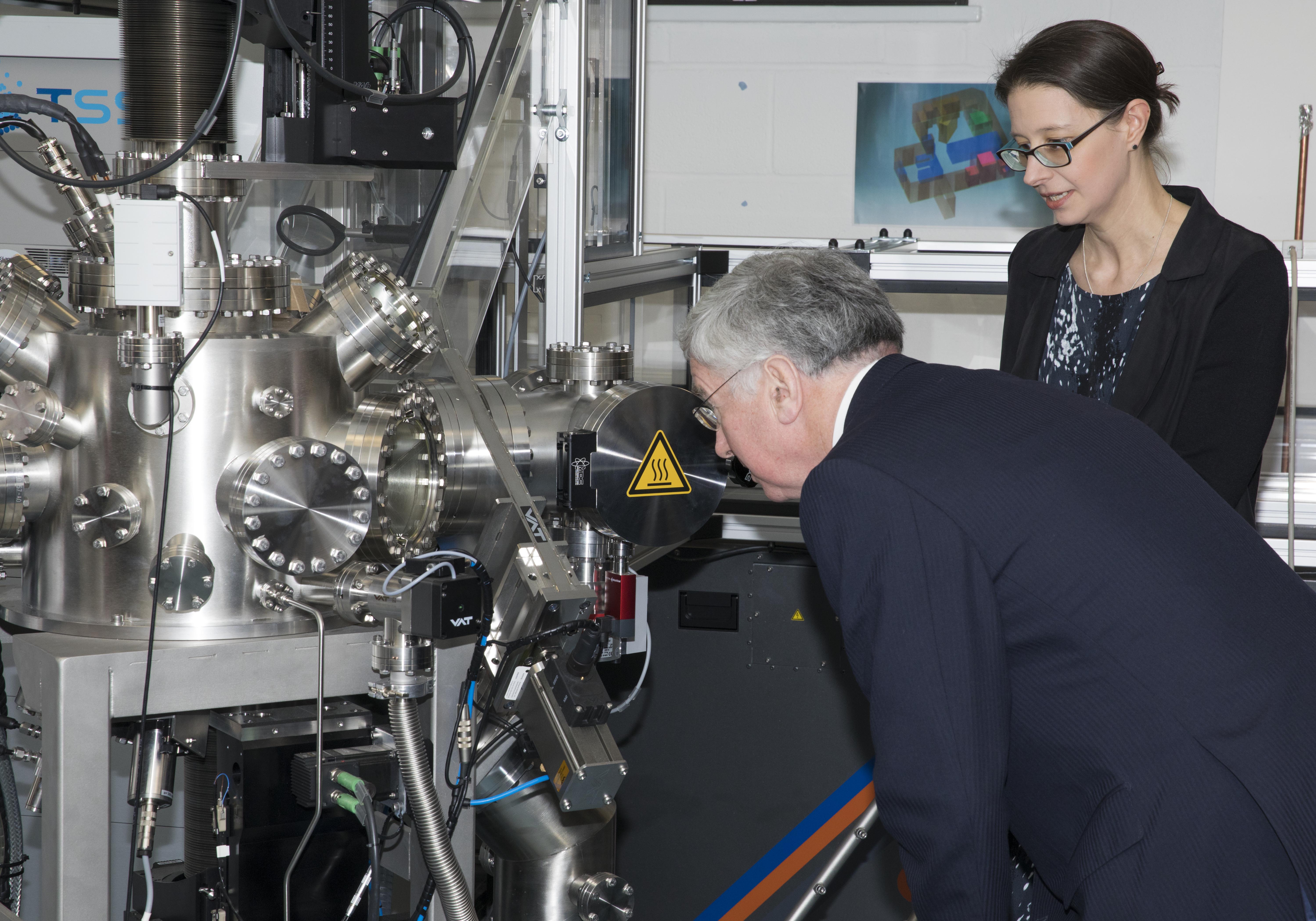Oxfordshire’s international strength in applied superconductivity technology has been boosted by a major new Oxford University research centre. Superconductors are materials with no electrical resistance which are vital for powerful new technologies in healthcare, large experimental facilities like CERN, quantum instrumentation and many other fields.
Funded through the Oxfordshire Local Enterprise Partnership’s Growth Deal with the Government, Oxford University has now established the Centre for Applied Superconductivity (CfAS) in its Departments of Materials and of Physics. Much of the UK’s strength in superconductivity is based in a 20 mile radius around Oxford. The Centre’s aims are to research new superconducting products and processes, to provide world-leading problem solving expertise for industry and to train new generations of technicians and scientists for the growing number of Oxfordshire companies working in this increasingly important technology field.
Formally launched at an event with Secretary of State for Defence, Sir Michael Fallon, CfAS has set up state-of-the-art new laboratories and built a research team of around 20 scientists, students, technicians and apprentices. The Centre has already established research projects with leading local companies in the sector, including Siemens Magnet Technology and Tokamak Energy. The team has also been consulted by international research organisations, including CERN.
The team has initially focused on three main areas of research. They are looking at practical ways to use new compounds in higher performance superconducting magnets and designing replacement materials in response to changes in regulations forbidding the use of lead compounds. The third area involves the use of superconductors at very low temperatures in new quantum technologies, including advanced sensors and meteorology.
CfAS is a vital local resource that enables us to tackle such a huge challenge of global importance.”
Dr David Kingham, Chief Executive of Tokamak Energy
Professor Chris Grovenor, one of the directors of CfAS, said: “We are very encouraged by the way industry has engaged with us, both in Oxfordshire and overseas. We are showing we have the expertise to contribute to the development of technical solutions across a wide range of superconductivity applications. We are very grateful to the Government and to the Oxfordshire LEP for supporting this new partnership between the university and our industrial partners.”
Secretary of State for Defence, Sir Michael Fallon was at Oxford to announce members of a Defence Innovation Advisory Panel who are drive forward a new Innovation Initiative. Members include Major Tim Peake, the first British astronaut at the European Space Agency and Ron Dennis, the founder of McLaren Technology Group.
Sir Michael toured the CfAS laboratory and said: “This joint project between the University of Oxford and local partners, focusing on direct engagement between the research community and practical application, is precisely the kind of collaboration our Innovation Initiative seeks to foster.”
Nigel Tipple, Chief Executive of Oxfordshire Local Enterprise Partnership (OxLEP), says: “We are delighted to be involved with the launch of Oxford University’s new research centre, which was funded from our City Deal programme; Oxfordshire is consistently leading the way in R&D and a facility such as this will contribute greatly to future successes. To have secured projects with such great local and international names already is a credit to the team’s hard work and proof that the facility is a firm investment for the county. We look forward to hearing more about the outstanding breakthroughs from the centre in the months and years to come.”
Dr David Kingham, Chief Executive of Tokamak Energy, said: ““Tokamak Energy is developing novel high temperature superconducting magnets to accelerate the development of fusion energy. CfAS is a vital local resource that enables us to tackle such a huge challenge of global importance. We have recruited a top student who graduated from CfAS and we can access unique facilities and expertise.”
